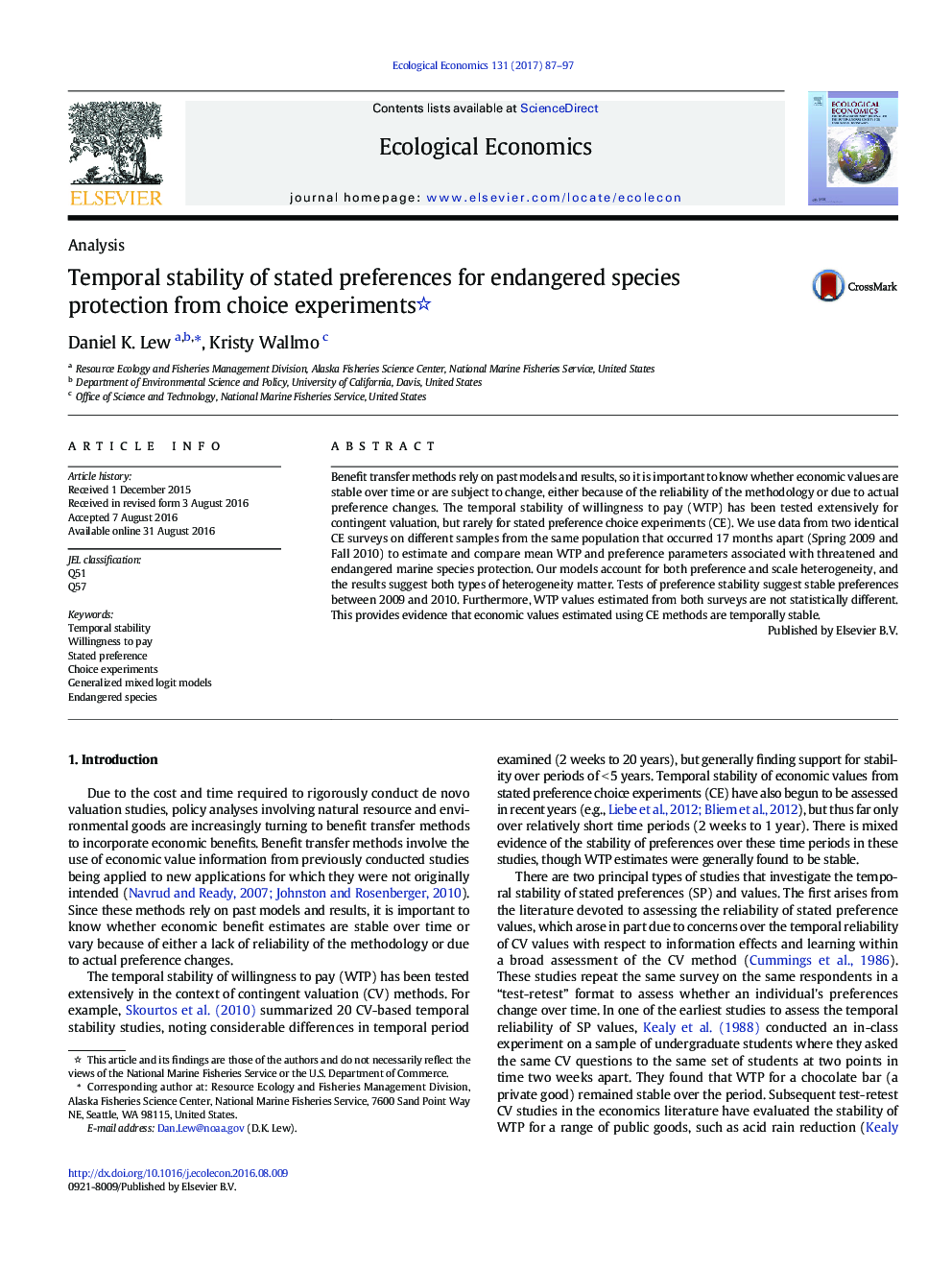| Article ID | Journal | Published Year | Pages | File Type |
|---|---|---|---|---|
| 5048860 | Ecological Economics | 2017 | 11 Pages |
Benefit transfer methods rely on past models and results, so it is important to know whether economic values are stable over time or are subject to change, either because of the reliability of the methodology or due to actual preference changes. The temporal stability of willingness to pay (WTP) has been tested extensively for contingent valuation, but rarely for stated preference choice experiments (CE). We use data from two identical CE surveys on different samples from the same population that occurred 17Â months apart (Spring 2009 and Fall 2010) to estimate and compare mean WTP and preference parameters associated with threatened and endangered marine species protection. Our models account for both preference and scale heterogeneity, and the results suggest both types of heterogeneity matter. Tests of preference stability suggest stable preferences between 2009 and 2010. Furthermore, WTP values estimated from both surveys are not statistically different. This provides evidence that economic values estimated using CE methods are temporally stable.
